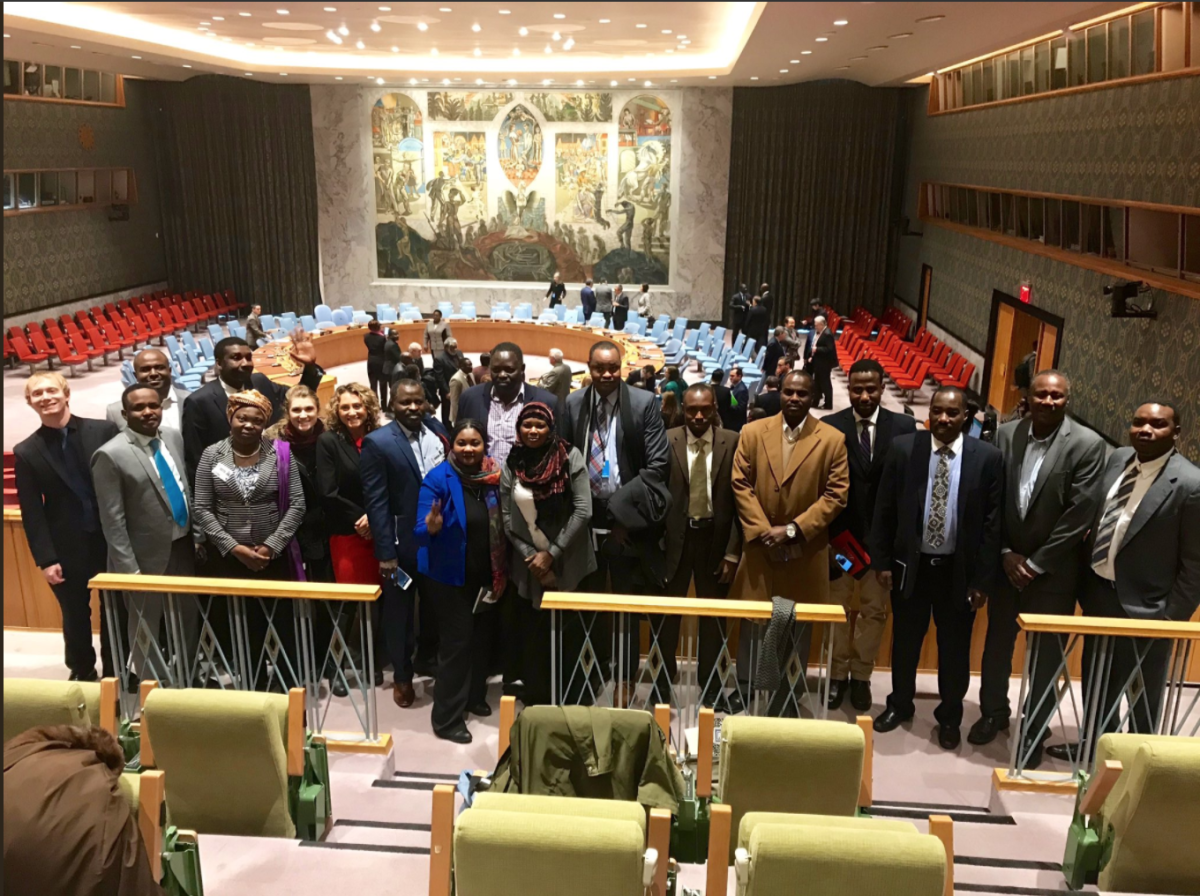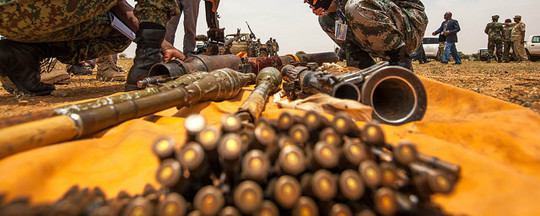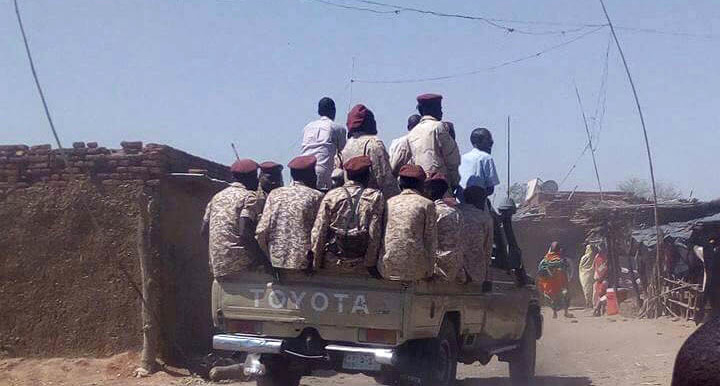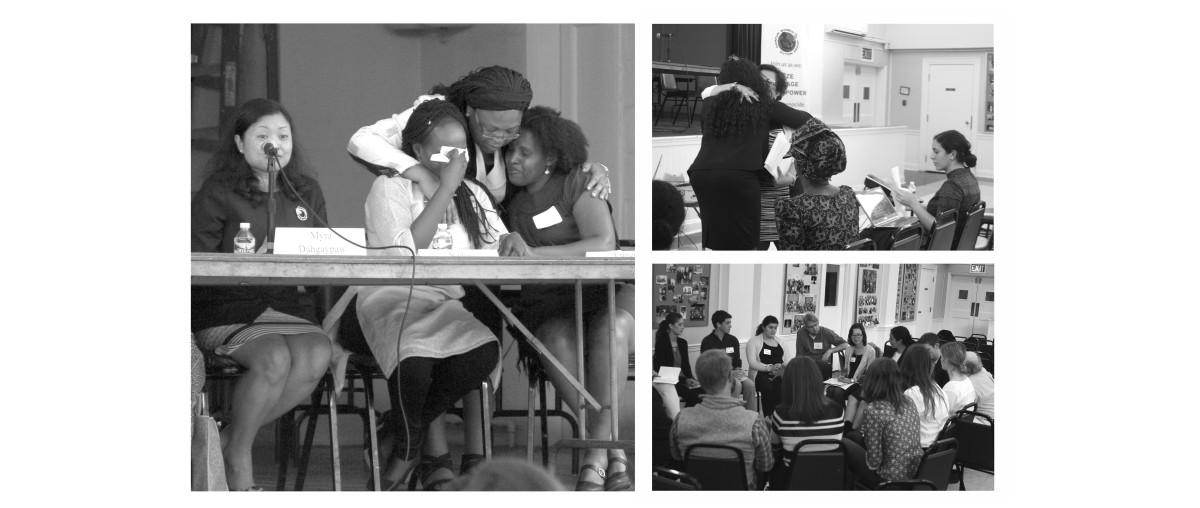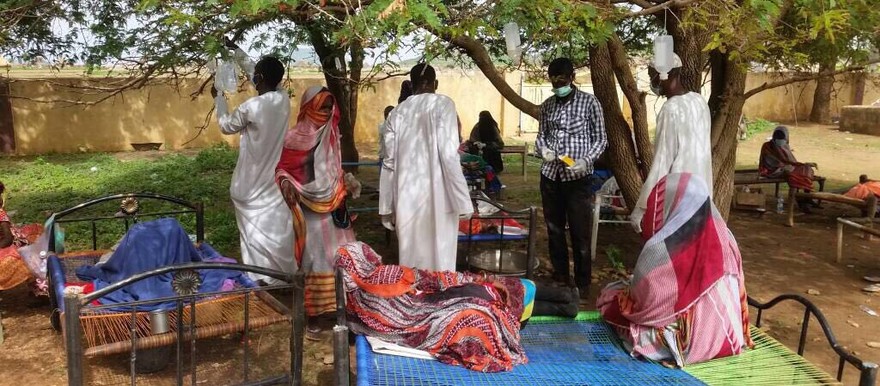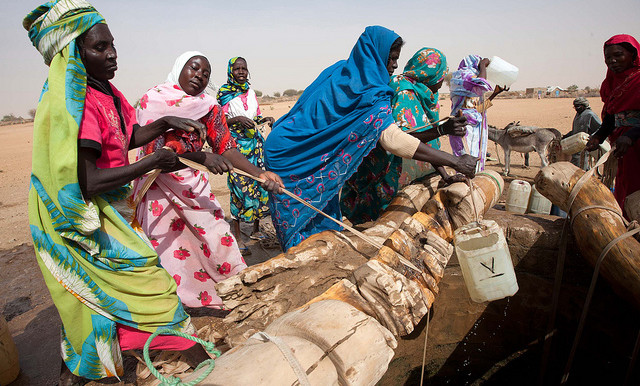Darfur Women Action Group and 22 Co-Signatories Delivered a Statement to Member States of the ICC and the UNSC
By: Marquale Royster, Policy Associate
The Assembly of State Parties (ASP) hosted its Sixteenth Annual Session over a ten-day period from December 4th-14th. During this session, state parties held several meetings aimed at tackling problems and providing new steps in the direction of improving the function of the International Criminal Court (ICC). The ASP made several pivotal decisions that will affect the role of the ICC. Some of the decisions made were in regards to; the ICC’s management and strategic direction, the election of six new judges, the 2018 ICC budget, matters of non-cooperation, the potential activation of the Court’s jurisdiction over the crime of aggression, and a plethora of other critical international topics.
Civil society working on international criminal justice has come from all over the world to participate in the strategy meetings and to organize side events to bring attention to their priority issues. In this context, with numerous meetings being held during the Sixteenth Annual Session, DWAG was able to host a side event with ICC Prosecutor Bensouda successfully. Some of our distinguished panelists were DWAG’s President and Founder, Niemat Ahmadi, Bibiane of The Friends of the Congo, Dr. Elisa Forgery. In addition, this event was cosponsored by The Permanent Missions of Switzerland to the UN, The Netherlands to the UN, and Costa Rice to the UN. The event was geared towards accountability for sexual and gender-based violence, which has been used as a weapon of war and to bring attention to women’s resilience and leadership in fighting against violence.
Ms. Ahmadi, as well as the rest of DWAG’s team, has facilitated the participation of about 50 activists and representatives of the Darfuri community from DC, NY, Philadelphia and New Jersey. They all participated in the ICC prosecutor’s briefing to the UNSC and the side event organized by DWAG to ensure their voices are heard, as well as to show their support for the ICC prosecutor as she delivered her 26th report on Darfur to the UNSC members.
During the briefing, the overwhelming majority of the UNSC member expressed their concerns about the situation in Darfur and strongly reiterated their country’s commitment to the ICC and to ensuring that those who committed crimes in Darfur are held accountable.
The event with the prosecutor is not the only course of action the Darfur Women Action Group and is partners took. While in New York for the ASP session, DWAG and its twenty-two co-signatories delivered a statement to member states of the ICC and the UNSC. In the statement, DWAG and co-signatories expressed their concerns on the ongoing atrocities in Darfur and Sudan at large and stressed for the urgent need for strong accountability measures for heinous and egregious crimes. The people of Darfur have suffered for more than a decade at the hands of al-Bashir and his regime, and it is time that we make progress in the direction of accountability and lasting peace.
In the letter, DWAG and our partners urged the international community to hold al-Bashir and his regime accountable for the crimes committed in Darfur. We also demanded that the international community establishes measures to make accountability more of a priority, which includes providing the ICC the necessary resources for continuing investigations on newly reported crimes. In addition, we asked that the UN seriously consider adopting new mechanisms to enforce ICC arrest warrants on any areas administered by the UN, including its headquarters.
It is imperative that the international community makes it clear to President al-Bashir and all perpetrators of genocide, war crimes, and crimes against humanity that impunity for these crimes will not and must never be an option. The only way to end this reign of terror is to hold perpetrators accountable and bring them to justice. With your help, we can make our voice stronger and demand action; we can compel the international community to take a concert actions, which will bring peace and justice as well as guarantees life with dignity for the people of Darfur and of Sudan who has been yearning for it for decades.
